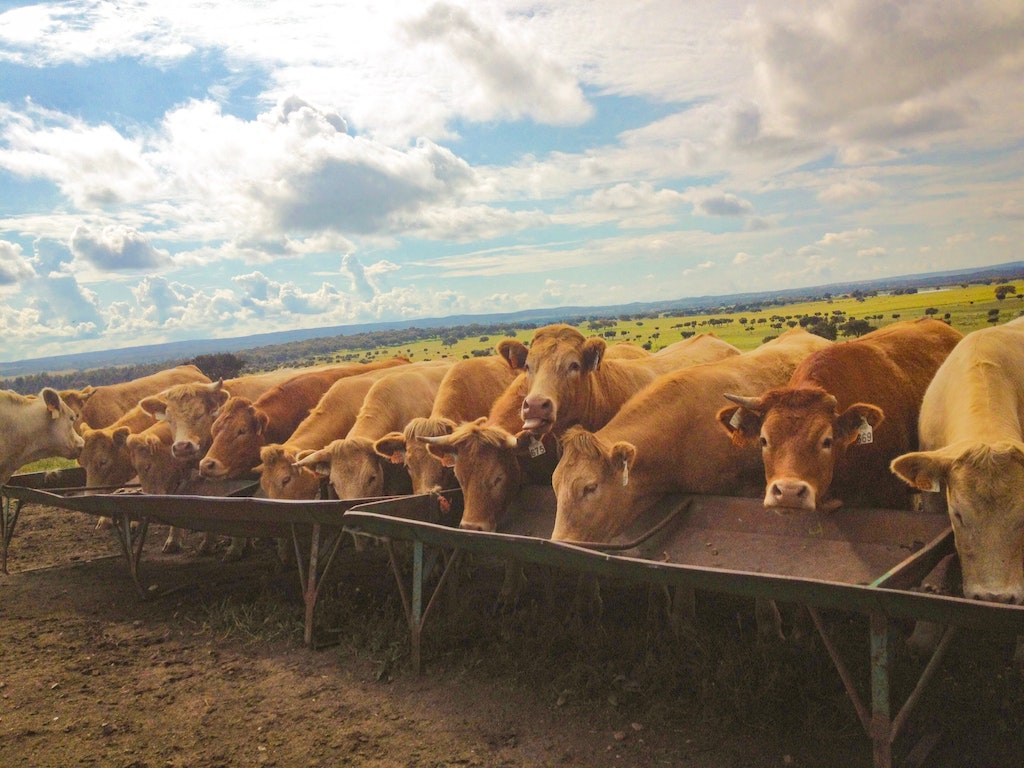3 Mins Read
Spain’s consumer affairs minister Alberto Garzón is once again urging the country to reduce its consumption of meat, especially beef, to help curb climate change and save the country’s tourism industry from desertification linked to factory farming.
Last July, Spain’s consumer affairs minister Alberto Garzón urged the country to reduce its meat intake. The fourth most populous European country, Spain leads the EU in meat consumption. The minister notes it slaughters more than 70 million land animals a year, totaling 7.6 million tons of meat per annum.
“Our health and the health of our families is at stake,” he said over the summer. “Eating too much meat is bad for our health and for the planet.”
Megafarms vs. the climate
Garzón is once again sounding the alarm, noting that industrial livestock “megafarms” are devastating the climate and the environment, he told the Guardian. The minister is urging the country to come to terms with the impact of its meat-eating habit.
Garzón says Spain’s geography puts it at an increased risk of issues related to climate change, including desertification, which he says would devastate the country’s thriving tourism industry.

“It would be the end for a country like Spain,” Garzón said. “Spain is a country in the Mediterranean basin – it isn’t the UK or Germany – and desertification is a very serious problem for our country, not least because it depends so much on tourism. Visiting a desert isn’t quite as attractive as visiting the Costa del Sol.”
Garzón says reducing consumption overall and switching to more sustainably produced meat needs to become a priority as much as other efforts to reduce emissions.
“People here know about the part that greenhouse gases play in climate change, but they tend to link it to cars and transport,” Garzón said.
“It was only very recently that everyone started to look at the impact of the animal consumer chain and, especially, at the impact of beef. Other countries were pretty advanced on that but in Spain it’s been a taboo,” he said.
“If we don’t act, it won’t just be climate change we’re dealing with – it’ll be the triple crisis: the loss of biodiversity; pollution, and climate change.”
Livestock emissions
According to a recent report cited by the minister, just 20 livestock “megafarm” companies are responsible for producing more emissions than the UK, France, or Germany.
“They find a village in a depopulated bit of Spain and put in 4,000, or 5,000, or 10,000 head of cattle. They pollute the soil, they pollute the water and then they export this poor quality meat from these ill-treated animals,” Garzón said.

Photo by Lynn Vdbr on Unsplash
Current consumption rates in Spain are about one kilogram of meat per person per week—more than double the country’s food agency recommendations.
Globally, the food industry is the leading contributor to climate change, producing about 17.3 billion metric tons of carbon dioxide per year—a number that is nearly 19 times the amount of emissions produced by aviation.
Spain has recently seen an uptick in interest in eating plant-based. Local vegan meat brand Heura has seen rapid expansion, including new category product launches. Last October, fast-food giant Burger King opened its first fully vegan pop-up at a location in Madrid it dubbed “Vurger King.”
Lead image by Gabriella Clare Marino on Unsplash



